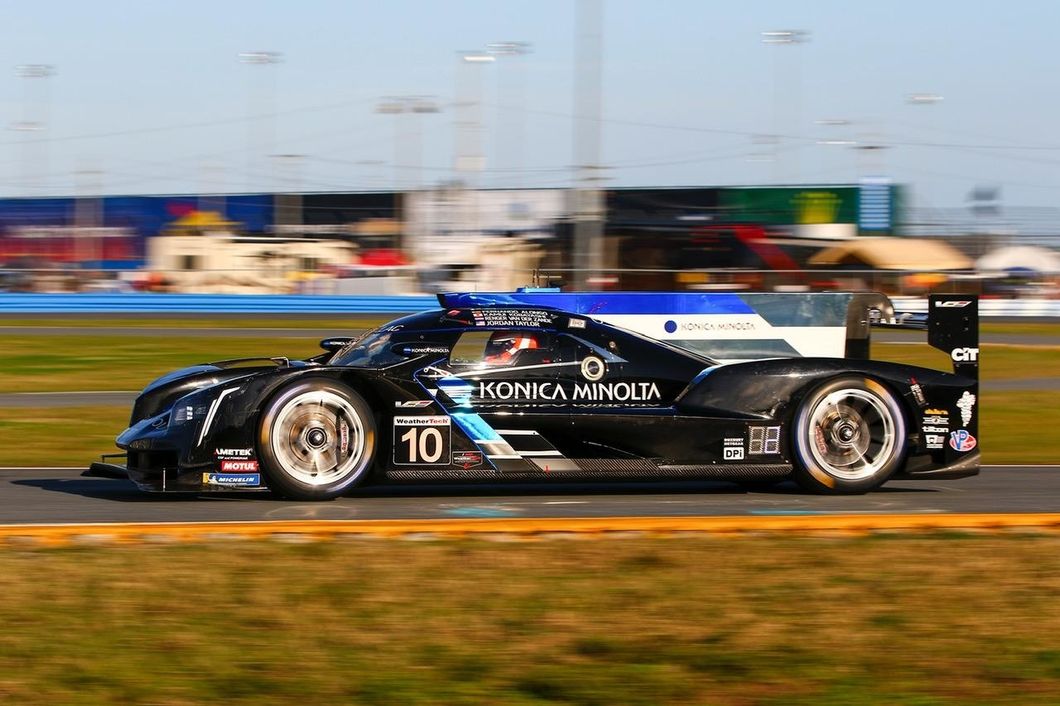On the weekend of January 25th, I had the privilege to attend the Rolex 24-Hour race at Daytona International Speedway. Teams of drivers speed around curves and twists for 24 hours. The race is a sports-car event operated by the International Motor Sports Association, IMSA. NASCAR, Indy Car, and Formula One drivers participate in this event and draw fans from all the different racing communities.
I was there with my grandpa, Steve Kearney, and three-time 24-Hour winner, Terry Borcheller, on behalf of Motorsports Ministries. Casual and ardent fans of racing love to follow certain drivers and teams; however, there are many behind the scenes players and roles that are equally important.
Through this race and many other races I've attended, I've become acquainted with a lot of the corner marshals. Positioned at specific turns, they signal drivers of any incidents as the cars rush by. Whenever there is an accident, these people are the first to respond. They wave the yellow caution flag and report the incident to the control tower. They are equipped with fire extinguishers for the chance of a burning car. They put in long hours, especially for the 24 Hours, carefully giving their attention to the race which they enjoy.
Whether standing in the heat or the rain, they are always there. Without them, the race would not be able to go on. At the Rolex 24, I noticed corner marshals spent around eight of those hours in the rain, responding to additional spinouts and incidents related to the weather.
At a smaller race, I took on the responsibilities of a corner marshal. I helped operate a corner for the majority of a day. My job was to wave the yellow caution flag. I got just a taste of what the 24 Hours would be like.
Before the 24 Hours, drivers gather for a meeting. Pictures of past champions line the walls, and the anticipation runs high. At these meetings, the race director introduces key sponsors, such as Rolex and WeatherTech. They also go over the rules and regulations of the race--pit-lane passing, and safety rules, to name a few. These meetings are very informative, and even if you are not racing, knowing these rules will help you follow the race.
Ambulances and tow trucks are stationed at strategic areas of the track ready for an emergency. They rush to assist drivers injured in crashes or cars sitting on the track. In addition, a medical office at the speedway immediately assists any driver who is injured or any other crew member or even fans who may need it.
Speedway security patrols the area throughout the race. I have been given the opportunity to meet many of the security members, and they are all great and friendly people. At the same time, they take their jobs seriously. Everyone who participates in the race must have a credential. The registration and credential office provides this important aspect. Giving the right people the right credential allows everything to flow smoothly.
One area that can often be taken for granted is the food and beverage services. Many food trucks are strewn across different areas of the speedway. Whenever we needed something to eat, we headed over to Marion's. Most drivers, their crews, and various other workers enjoy flavorful food and drinks located in a large tent. Marion and her team work tirelessly to provide meals during the race.
I was involved with Motorsports Ministries. Motorsports Ministries is an organization that dispatches chaplains to many different races. I was assisting Chaplain Steve Kearney, my grandfather, and Chaplain Terry Borcheller, a former racer. The Ministry hosted two chapel services and a Catholic mass. But the most important part of the Ministry is the relationships we make with the people involved in the racing community. This communication allows us to have a far greater outreach.
Before the race started, we walked down pit-lane and wished the drivers good luck, sometimes stopping to have a conversation. We also make an effort to visit the corner marshals and chat with them. In the past, my grandfather has accompanied drivers to the hospital, provided spiritual encouragement, officiated funerals, and even performed weddings in victory lane.
These behind the scenes jobs are the ones I have observed the most, and they are all important. I know I may have missed some other valuable duties. As a racing fan and a behind the scenes person myself, I appreciate them all. If you enjoy fast sports cars and racing, I highly recommend getting involved in the racing community.






 The minimum wage is not a living wage.
StableDiffusion
The minimum wage is not a living wage.
StableDiffusion
 influential nations
StableDiffusion
influential nations
StableDiffusion












